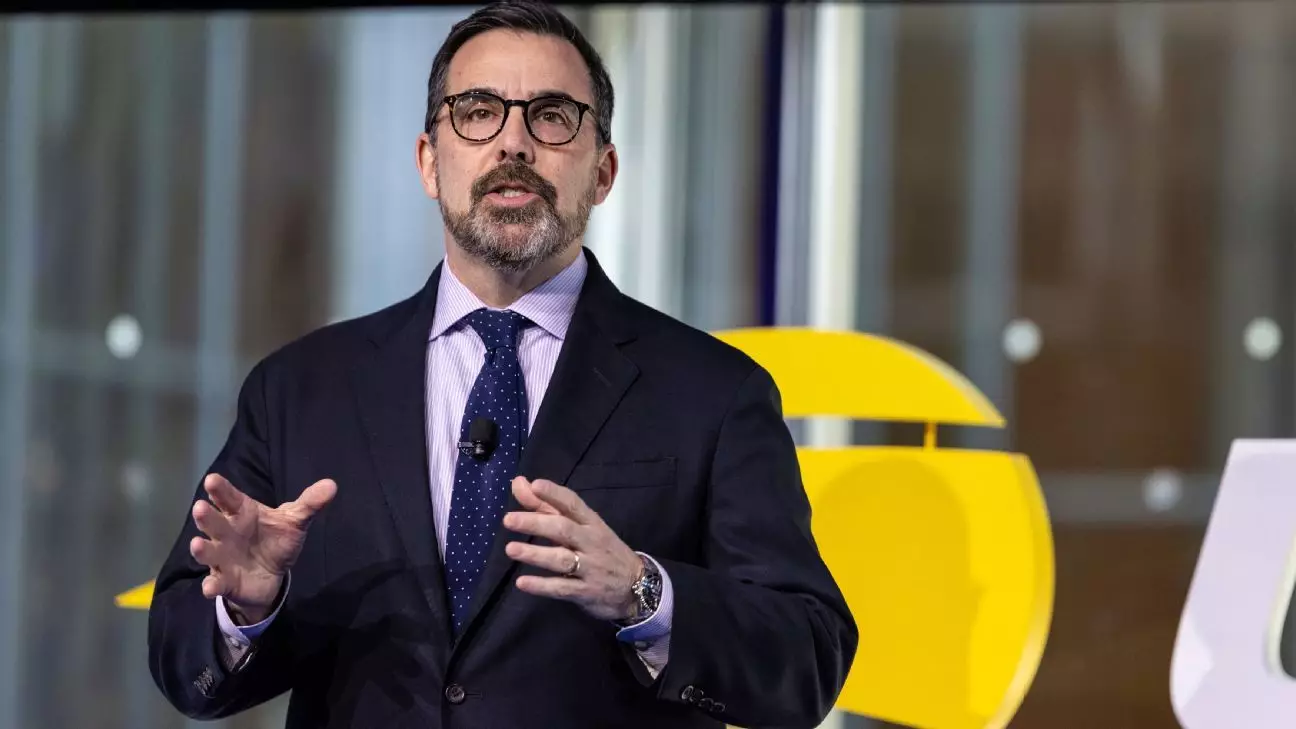The New York Mets have made a bold move that could significantly reshape their business operations and cultural atmosphere. The team has appointed Lew Sherr, the former CEO of the U.S. Tennis Association (USTA), as their new president of business operations. Sherr, who has had an influential tenure at the USTA since 2010, brings a wealth of experience to the Mets, particularly in revenue generation and strategic growth initiatives. His blend of professional expertise and a fresh perspective makes this appointment both strategic and timely for a franchise looking to assert itself more firmly in the competitive landscape of Major League Baseball.
Sherr’s Background: A Proven Track Record
Having served as the chief revenue officer for the USTA prior to his promotion, Sherr’s robust career has been characterized by tangible results and innovative contributions to the sport of tennis. Under his leadership, the USTA has not only seen a notable surge in participation rates but has also successfully attracted record attendance at the US Open, significantly increasing sponsorship revenue and ticket sales. Sherr’s strategic thinking culminated in major investments that elevated facilities and event experiences, such as the recent announcement of an $800 million revamp of Arthur Ashe Stadium, which demonstrates his commitment to enhancing participation and fan engagement through improved infrastructure.
His ability to manage complex projects while simultaneously pushing for the growth of the sport makes him an asset to the Mets organization. Transitioning from tennis to baseball, Sherr’s insights gained from overseeing high-profile events in a different sport could bring fresh ideas and methodologies that could revolutionize how the Mets operate both on and off the field.
The Impact of the Cohen Family
At the center of this transformative effort is Mets owner Steve Cohen, whose ambitious vision is reflected in the organization’s current trajectory. Cohen has shown an unwavering commitment to elevating the Mets’ status within the league and improving community engagement through various initiatives, including the plans for a casino and entertainment district near Citi Field. Sherr recognizes this energy and promise while indicating that the support from Cohen and the broader ownership group is pivotal for the team’s future. His enthusiasm highlights a sense of alignment with the organizational goals, presenting a potential for robust leadership and performance improvement.
Sherr’s focus on community outreach through the Mets’ foundation further emphasizes a modern approach to sports management. By merging competitive excellence with social responsibility, the franchise can cultivate a loyal fanbase and enhance its brand identity. His awareness of community dynamics will be crucial as the organization seeks to bridge the gap between corporate pursuits and local engagement.
Navigating Transition and Change
While Sherr’s departure from the USTA reverberates through the tennis community, he seems to be committed to a seamless transition before his official start with the Mets in July. His acknowledgment of the bittersweet nature of leaving a beloved organization indicates a deep sense of loyalty to his past while maintaining an upbeat outlook toward the future. As interim leadership is established at the USTA, the focus now shifts to how Sherr will tackle similar challenges and opportunities within the Mets’ framework.
The Mets have recently seen numerous shifts in their executive structure, most notably the departure of their previous president of business operations, Scott Havens. As the organization becomes more agile and responsive, Sherr’s arrival could stabilize any lingering uncertainties and catalyze a culture of strategic agility and innovative thinking. The changes within the executive roster might also signal a broader re-evaluation of the team’s business strategies, ultimately benefiting from Sherr’s insights.
A Vision for the Future
Sherr’s vision is clear: “big swings” with carefully calculated risks are essential for meaningful progress. As he embarks on this new venture with the Mets, the focus will undoubtedly be on leveraging his expertise to maximize revenue streams, enhance fan experiences, and improve competitive performance. His unique perspective will be instrumental in shaping how the Mets position themselves in an industry that continually evolves.
This pivotal moment in Mets history carries the potential to ignite substantial changes in how the organization operates. As Lew Sherr prepares to lead the charge in transforming the Mets’ business landscape, fans and industry observers alike will be watching closely to see how his vision unfolds, potentially setting a new standard for operational excellence in sports.


Leave a Reply